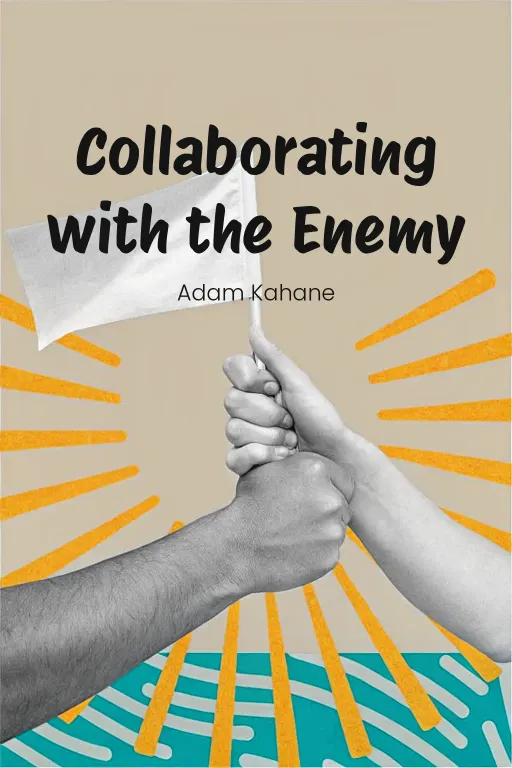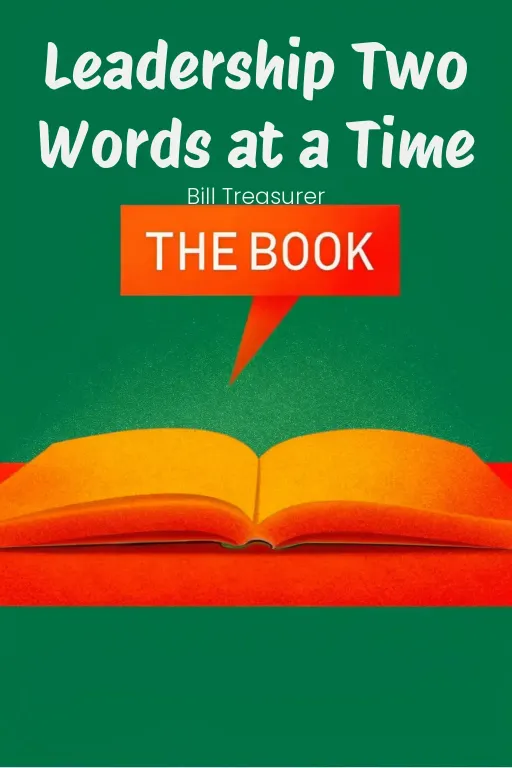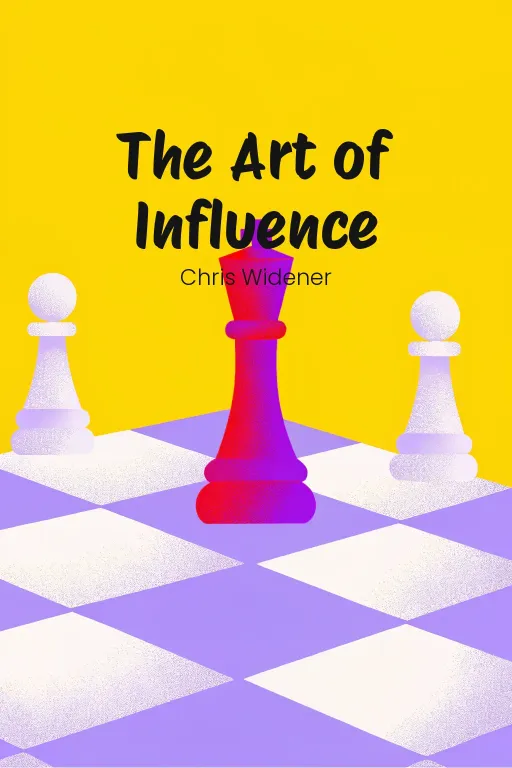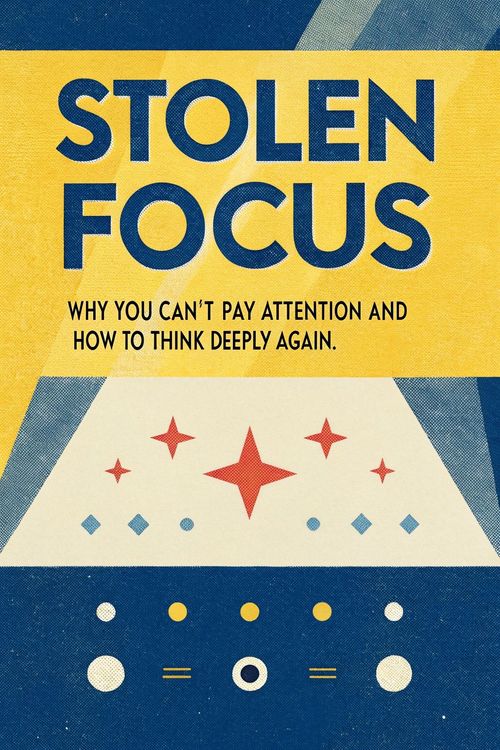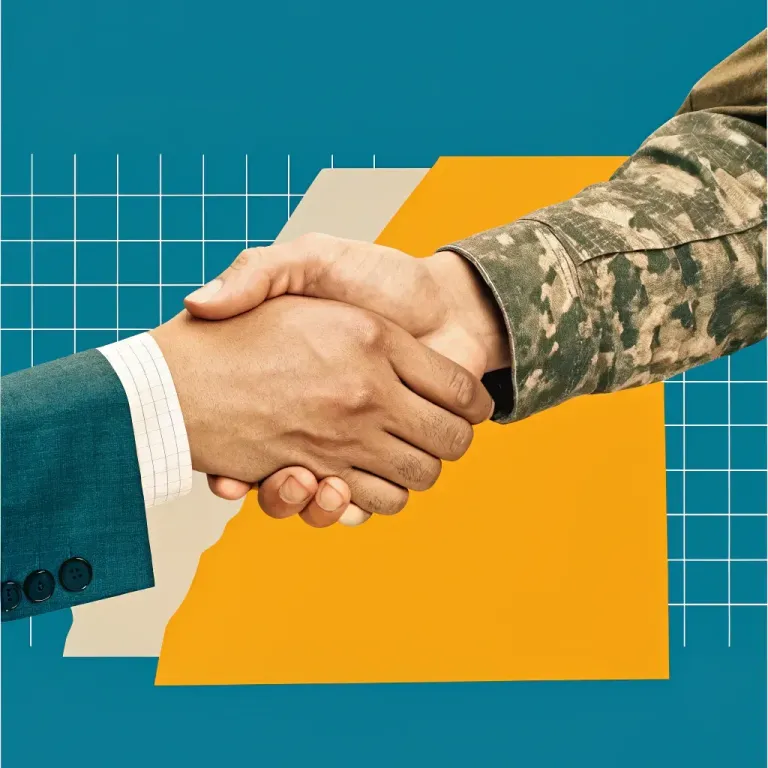
Turn Conflict Into Connection? Yes, You Can
Podcast by Beta You with Alex and Michelle
How to Work with People You Don't Agree with or Like or Trust
Introduction
Part 1
Alex: Hey everyone, welcome to the show! Let’s kick things off with this: Have you ever been stuck working with someone you just didn’t trust? Maybe a coworker you clash with, a neighbor who's your polar opposite, or even a competitor? Sounds like a nightmare, doesn't it? Michelle: Nightmare is an understatement, Alex. It’s tough enough collaborating with people you like, let alone someone you consider the “enemy.” Isn’t that just a guaranteed train wreck? Alex: Well, Adam Kahane actually challenges that in his book, Collaborating with the Enemy. He basically says, let's rethink collaboration. It’s not about perfect harmony, but about diving into the mess, the disagreements, the uncertainty of it all. He calls it "stretch collaboration." It’s a totally different way to approach those big, complex issues where everyone’s super polarized, like peace talks in Colombia or global conflict resolution. Michelle: So, ditch the whole "everyone holding hands and singing" thing and just jump into the deep end of conflict? Sounds...risky. What’s the core idea here? Alex: Kahane uses real-world examples and introduces three key ideas. First, conflict isn't just unavoidable, it can actually fuel progress. Second, we need to experiment, like scientists, instead of sticking to rigid plans. And third, real change happens when individuals take ownership of their role in the situation. Michelle: Okay, so it’s like transforming a battlefield into a laboratory, hoping to eventually build a bridge? Intriguing, but I am still a bit skeptical. Let's dig in and see if this “stretch collaboration” concept actually works.
Embracing Conflict and Connection
Part 2
Alex: Okay, so that leads us to the first really important thing about stretch collaboration: seeing conflict as a good thing, a way to actually make progress. Now, Michelle, that probably sounds a little weird, right? I mean, we’re always told that conflict is bad news in groups, that it messes up projects, ruins relationships, and basically grinds everything to a halt. But Kahane kind of flips that idea on its head. He says conflict isn’t something you should run away from; it’s something you should actively work “with”. Michelle: Right, so we are talking about getting a bunch of people who disagree strongly in one room, give them conflicting goals, and then watch the collaborative magic happen? Isn’t that just asking for trouble? Alex: I get your point! But think about the Destino Colombia initiative. Kahane worked on this awesome project that was designed to bring peace to Colombia after decades of violence. Imagine this: military leaders, guerrilla fighters, regular people, and business folks all in the same room, telling their stories, talking about what made them angry. Michelle: Woah, hold on. Actual guerrilla fighters sitting across from people who might have lost family members to them? Seriously? That sounds like… intense doesn’t even cover it. That sounds impossibly tense. Alex: Exactly! And that’s the whole idea! They didn't try to pretend that tension wasn't there. Instead, the people in charge created a safe space where everyone could share their feelings, even if it was uncomfortable. For example, there was this guy, Ronald Ochaeta, who had seen firsthand what the war did to people, and when he told his story, everyone in the room just went quiet. People from all sides started to realize that their so-called enemies were actually human beings. Michelle: Okay, so they sat there, dealt with all that awkwardness, and… boom? Peace? Alex: Not exactly magic, but something really powerful happened. By listening to those personal stories, they stopped seeing each other as just "the enemy" and started seeing each other as people. They didn’t all agree in the end, not even close. But they became more willing to work together because they understood that things could change, even the things that seemed impossible to change. Michelle: Okay, I’m impressed. They didn’t make the conflict disappear, but they stopped it from getting worse. It’s kind of like those controlled burns they do in forests, isn’t it? You know, using something dangerous in a safe way to clear out the old stuff so new things can grow. Alex: Absolutely! Kahane calls it embracing the tension, not trying to smooth it over. He thinks that conflict is what sparks creativity and new ideas. In Destino Colombia, just hearing different opinions created a new space for conversation and innovation. Michelle: Alright, but this sounds a little too good to be true. Going from major tension to a shared understanding in a controlled setting is one thing, but what happens when things go off the rails? You’d need some tools to manage it before it all implodes, right? Alex: That’s where Kahane’s methods come in handy. The first thing he talks about is balancing what he calls power and love. Michelle: Power and love? I am getting self-help seminar vibes here. Alex: It’s not as cheesy as it sounds! Power is about standing up for yourself, making sure your voice is heard, and getting your needs met. Love is about connecting with others, understanding them, and building relationships. Kahane says that you need both to collaborate well. Too much power, and you’re a bully. Too much love, and you get walked all over. So, in Colombia, people were told to speak honestly but also to really listen to those they disagreed with. Michelle: I guess that balance doesn’t just happen automatically, does it? Did they have referees or something? Alex: Sort of! They had trained facilitators who led structured conversations. These weren’t just yelling matches; they were carefully planned discussions that made sure everyone got a chance to speak and that the group stayed on track. The facilitators helped people challenge each other in a positive way, turning potentially nasty situations into opportunities to learn. Michelle: So, they were like conductors making sure the orchestra didn’t turn into a total mess and that people didn’t start throwing instruments at each other. Alex: Exactly! And along with those conversations, personal reflection was really important. People were encouraged to look at themselves, think about their own biases, and realize how they might be contributing to the problem, instead of just blaming others. That’s how you build empathy, which is key to connecting with anyone. Michelle: I imagine taking personal responsibility is hard. I mean, no one wants to admit they’re part of the problem. How did people react to that? Alex: Well, in Destino Colombia, some people who came in ready to point fingers eventually started saying things like, "How have I made this situation worse?" That change—from blaming to owning up—was a big deal. It made people more understanding, and that built trust. Not perfect trust, but enough to start working together. Michelle: Okay, so to make conflict work for you, you need power to push your ideas, love to connect with people, structured conversations to keep things in order, and a willingness to admit you’re not perfect. Did I miss anything? Alex: You nailed it! And there’s one more thing to think about: how you see differences. Kahane says that instead of thinking our differences are a problem, we should think they’re a good thing. It’s those differences that lead to new ideas and help us solve tough problems.
Experimentation Over Perfection
Part 3
Alex: That leads us to an interesting point: experimentation in navigating uncertainty. It builds on embracing conflict by focusing on practical methodologies—using creative processes to adapt to change, rather than seeking a single perfect solution. Michelle: Experimentation, huh? Sounds like another Silicon Valley buzzword: "Fail fast, fail often." Doesn't this just excuse a bit of chaos? Alex: Not really. Adam Kahane makes a key point: experimentation isn’t about glorifying failure itself. It’s about learning through cycles—prototyping, testing, then refining. Adaptability is vital when facing uncertainty. He even uses the term “negative capability” from the poet John Keats to describe the mindset needed to navigate this ambiguity. Michelle: Negative capability? Sounds like something you’d want to avoid. What does it even mean? Alex: It's the ability to tolerate ambiguity, to not rush to quick solutions. Imagine standing in fog—you can't see everything but instead of panicking, you stay open to what might appear. Kahane says that this resilience lets teams engage with these messy problems creatively, instead of getting stuck in rigid solutions. Michelle: Alright, I like the fog analogy. But, concretely, how does this work in the real world where politics are so divisive and uncertainty is so high? Alex: A great example is the Destino Colombia project. It was a “really” polarized environment, with guerrilla groups, the government, and civil society all deeply distrustful after decades of violence. The project used scenario planning—participants didn’t need to commit to one solution. Instead, they explored multiple futures for Colombia. Michelle: Multiple futures? So, they turned peace-building into a “choose your own adventure” story? Alex: In a way, yes! Participants didn’t just imagine one ideal outcome; they looked at best-case, worst-case, and everything in between. This forced them to confront the realities of each path. It revealed possibilities and made the group more adaptable. Michelle: And this scenario planning—how effective is it? It sounds...abstract. Sitting around imagining possibilities feels a bit flimsy, no? Alex: Here’s the brilliance: it wasn’t just a brainstorm. It was structured and brought out creative and practical strategies. Thinking through potential futures, participants uncovered risks, trade-offs, and interdependencies they hadn’t considered. For example, they realized that even in their worst-case scenarios, they could still work with something. That helped them find approaches rooted in reality, not fantasy. Michelle: Huh. So, instead of sticking to one solution, they became flexible. It's like steering a ship—big problems need room to adjust, not just a straight path forward. Alex: Exactly. And they also tested ideas through prototyping. Participants brainstormed ways to involve marginalized communities in peacebuilding, tested them locally, and refined them based on what worked. Michelle: Speaking of the devil—failure. When prototyping, failure seems unavoidable. How do you get people to accept that risk, especially those with a lot at stake? Alex: Kahane says you need to create an environment where failure is seen as progress. Reframe setbacks as data. In Destino Colombia, they built in feedback loops. After each workshop, participants reflected on what was productive, what went wrong, and what they learned. Normalizing reflection made “failure” part of learning. Michelle: Like iterating a draft for a paper. You don’t expect perfection at first—you refine and sharpen with each round. Alex: Exactly. And it also encourages creativity because participants feel safe sharing unconventional ideas. When "failure" is valuable feedback rather than a punishment, people engage more energetically. Michelle: But isn’t good facilitation essential? Otherwise, wouldn’t these sessions turn into blame games? Like, “So-and-so caused the failure!” Alex: Absolutely, facilitation matters a lot. In Destino Colombia, the facilitators ensured that reflection remained constructive. They guided participants to focus on system-level insights—what works overall, rather than blaming individuals. Michelle: So, what’s the goal of these reflections? Does the process just repeat...forever? Alex: That’s what’s great about it! The cycles might not offer a permanent "end" to the problem, but they allow for continuous learning. In these complex environments, adaptability is more valuable than a perfect solution. Michelle: Alright, I get it—experimentation over perfection. Embrace the fog, navigate through trial and error, and use feedback as fuel. But how does tolerating so much uncertainty not paralyze people? Doesn't ambiguity sometimes lead to inaction? Alex: Good point, Kahane acknowledges that. The process works by shifting focus from needing all the answers to being curious about what can be learned. It’s not passive stalemate—it’s active engagement with uncertainty. In Destino Colombia, tolerating ambiguity allowed people from opposing sides to move forward when a rigid approach would've led to more fighting. Michelle: So, lean into the discomfort, stay flexible, and trust the process. It sounds counterintuitive, but it turns uncertainty into an asset.
Personal Responsibility and Accountability
Part 4
Alex: So, keeping this adaptive mindset in view, the last core idea really zones in on the personal responsibility it takes to keep collaboration alive. It’s the culmination of everything, bringing together how you think and what you do into actual personal growth. Bottom line, it’s about stepping up—not just being there, but really shaping the direction of the collaboration, handling both the good and the bad. Michelle: Ah, so now we’re at the blame-yourself portion of the program? Sounds like Kahane wants us to do some serious soul-searching here. Alex: Precisely! Kahane argues that successful collaboration isn’t just about having all the right systems or strategies, it really depends on individuals being willing to hold themselves accountable. He talks about really looking inward and realizing that we’re never just innocent bystanders; we’re always a piece of the puzzle, too. Michelle: Okay, but doesn’t constantly thinking “I’m part of the problem” just lead to a guilt trip? Why voluntarily shoulder that weight when, let’s be honest, most of the mess is usually caused by other parties or outside forces? Alex: I get that, it’s a totally understandable reaction. But Kahane kind of turns that around. He suggests that, counterintuitively, looking inward is actually empowering. When you acknowledge your role in the problem, you actually regain the power to influence the solution. Otherwise, it’s really easy to just point fingers and wait for someone else to clean things up. Michelle: So, instead of endless self-criticism, we're actually reclaiming control? Interesting. How does this actually work? Alex: Kahane suggests a few ways to build this self-accountability. For example, building in regular times for self-reflection during the collaboration. Imagine short breaks in discussions where everyone gets asked tough, but clarifying questions, like, "What assumptions am I making that might be coloring my views?" or "How might I be unintentionally contributing to the problem we're tackling?" Michelle: Hold on—do people actually answer honestly in a group setting? Aren't we naturally wired to be defensive? Alex: It's not a walk in the park by any means, and you absolutely need a foundation of trust; but structured reflection can actually help disarm that defensiveness. Instead of focusing on blame, it’s more about admitting where you have agency. Take the Bhavishya Alliance, for instance—they're working to combat child malnutrition in India—this method completely transformed their collaboration. Michelle: Ah, the case study arrives. Alright, tell me more. Alex: Okay, so picture this: a collaborative effort involving 26 different organizations, from government agencies to local nonprofits. Lofty goal – reduce child malnutrition. But the project stumbled early on because of all the tension brewing between the participants. Everyone was hyper-focused on what everyone else was doing wrong—blaming the government for red tape, the nonprofits for disorganization, or systemic issues for blocking any progress. Michelle: Sounds about right. A classic blame game. So, what changed? Alex: The turning point came during a particularly tense feedback session where everyone was about to explode. Instead of letting it turn into a screaming match, the facilitators steered the conversation. They asked everyone to identify ways their own actions might be adding to the dysfunction. Michelle: Let me guess—crickets? Alex: Exactly. It was a tough moment of reflection. But once people started being truly honest—admitting their blind spots and unexamined behaviors—the energy in the room noticeably shifted. Participants started moving away from “They need to change” and more towards “What can I do differently?” That shift created a foundation for more open and productive dialogue moving forward. Michelle: So, they called a truce in the blame game and reset. So the implicit agreement is that change needs to happen internally. And where does feedback come in? Alex: <Laughs> Ha, exactly—and that brings us to another gem from Kahane: feedback mechanisms. Michelle: Feedback loops sound great on paper, but in the field, they easily turn into awkward, shallow, and mildly terrifying performance reviews. What angle does he take? Alex: Kahane looks at feedback as a collaborative, constructive process, not an evaluative one. It’s about asking questions at the group level, like, "What’s helping us move forward?" or "Where might I be accidentally hindering progress?" Michelle: And I’m betting it’s not about pointing fingers, but collectively adjusting course, right? Alex: Correct. By focusing on behaviors and systemic patterns instead of individual shortcomings, feedback becomes a tool for fine-tuning instead of sparking conflict. And this isn’t a one-off thing; the advice is to incorporate these reflection sessions into the collaboration on a regular basis. Michelle: Regular feedback loops? Sounds like a potential minefield. Does it get easier with practice? Alex: Definitely. The Bhavishya Alliance is a prime example—once they made self-assessment and continuous recalibration the norm, the whole tone of their collaboration improved. Everyone started showing up with more humility and openness. Michelle: So, instead of showing up ready for battle, they brought—what—a mirror? Alex: Perfect image! Yes, because that mirror fosters empathy, too. Once you acknowledge how challenging it is to change your own behavior, it’s a lot harder to dismiss or attack someone else for struggling with their own challenges. Michelle: I guess it’s like being in a room full of jugglers—all dropping their own balls—and realizing, “Hey, this is tough for everyone.” More understanding, more collaboration. Alex: Exactly! And that understanding builds trust, which tears down the obstacles that were previously locking people into defensive stances. Michelle: The logic’s sound, but something’s nagging at me: what happens when people slip back into their old habits? Do we end up in an endless cycle of progress and regression? Alex: That’s a crucial question, and Kahane’s clear on this—it’s not about expecting perfection. Accountability is an ongoing thing, not a one-time miracle. Regular self-evaluations, honest feedback, and a commitment to show up, are what keep things heading in the right direction, even if it’s not always perfect. Michelle: I see, small consistent steps instead of one dramatic moment. Less of a desperate play, more of a steady advance. Alex: Precisely. Personal responsibility isn’t just about fixing problems—it’s about holding tight to the belief that progress, not perfection, is the ultimate goal.
Conclusion
Part 5
Michelle: Okay, Alex, let's bring this home. So, to really “stretch” our collaboration skills, we've hit on three key points: see conflict as a power source, experiment your way through ambiguity instead of chasing some perfect ideal, and step up, take ownership to shift from a blame game to real accountability. Alex: Precisely. Adam Kahane's framework—it's a game-changer, right? It makes us rethink how we deal with those thorny, complex issues. Conflict? It's not the bad guy; it's a chance to grow. Experimentation isn't failing; it's learning. And taking responsibility? It's not about finding fault; it's about taking charge. Put them together, and you can collaborate, even with people you see as opponents. Michelle: Let's be real, though. None of this is a walk in the park. Sitting with discomfort, dealing with uncertainty, admitting you're not perfect – that's tough stuff. But the reward? Huge. Global issues, office politics, even just a family dinner that’s gone sideways—these ideas fit everywhere. Alex: That's the heart of it—collaboration isn't about smoothing over differences or getting everyone to sing from the same hymn sheet. It's about building solutions together in that messy space between us all. So, the question is, what part do you want to play in making things better? Ready to stretch yourself? Michelle: Give it some thought—and keep in mind, even small changes in how you handle conflict or uncertainty can create surprising results over time. So, Alex, what's up next on our collaboration playlist? Oh, never mind—we’re supposed to embrace the chaos, aren't we? Alex: Exactly! Controlled chaos—just as Kahane would advise. Thanks for listening, everyone! Happy stretching!



